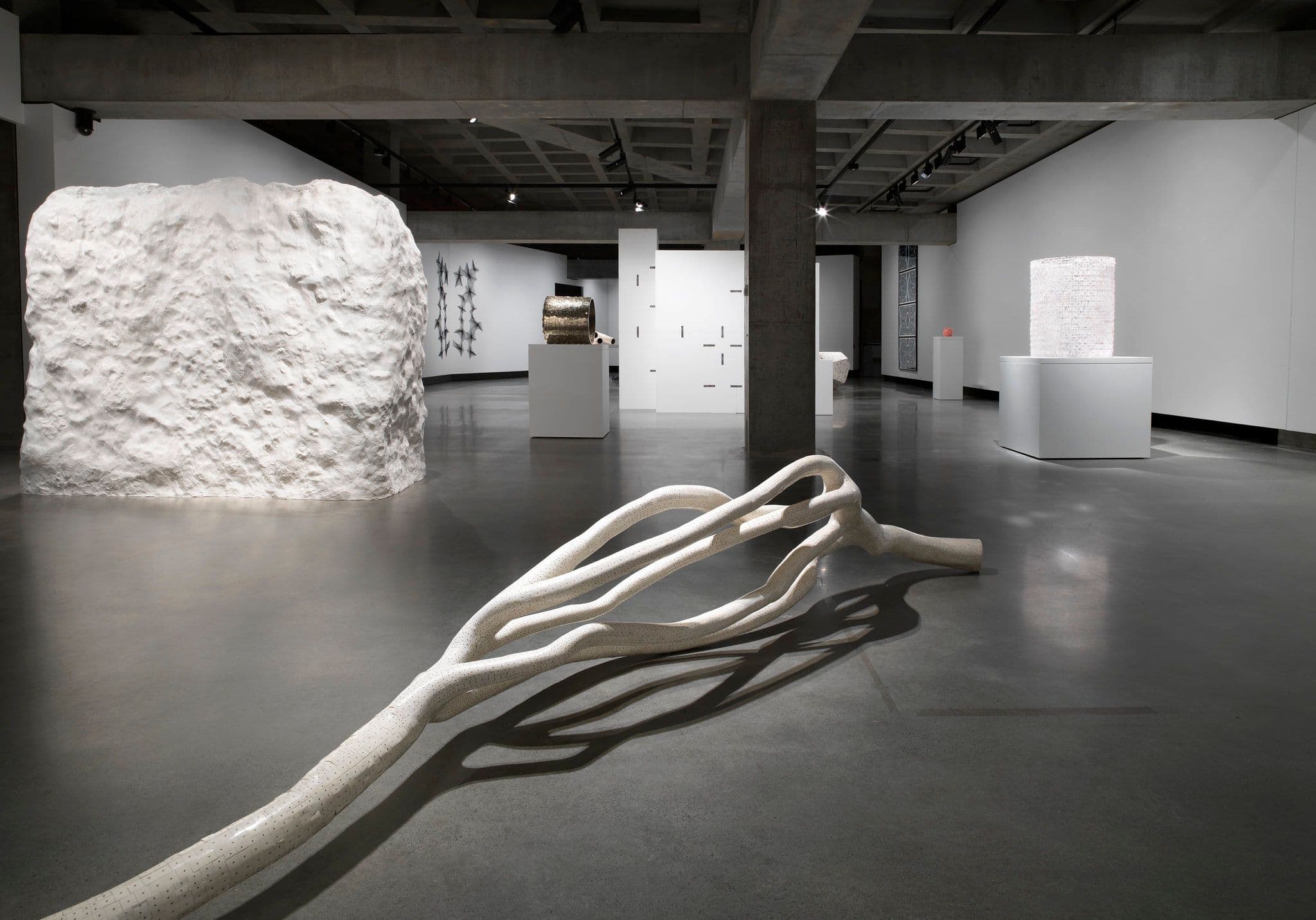Hubert Duprat

‘What is an artist?’ and ‘What is art?’, asks French artist Hubert Duprat.
He conducts experiments—not necessarily to test hypotheses—but for their own sake and for the sense of wonder induced by the results. He employs materials ranging from the rare and precious (gold, pearls, precious gems) to the man-made and everyday (polystyrene and modelling clay). Most famously, he once patented a process for making live aquatic insects decorate their silk body-cases with gold spangles and jewels instead of twigs and sand. Thus provoking more burning questions: ‘Who owns ideas?’ and ‘Who owns nature?’
The experiments of Duprat—a self-taught and self-professed amateur—have us intrigued. Which is why we’ve brought him to Mona for his first exhibition in Australia. Duprat’s approach to making art resists neat compartmentalisation, with his work plumbing the ripe borderlands between artistry and science. You can expect (among other things, mind you) an evocation of prehistoric symbolism and technical adaptation, as artistic expression meets rationality head-on.
Curated by Olivier Varenne, Jane Clark and Nicole Durling
Heade image: Exhibition view, Hubert Duprat, 2013–14 including
Untitled, 2008–9/2013, modelling clay
Collection of the artist
Both root and fruit (À la fois, la racine et le fruit), 1997–98, Hubert Duprat, wood, cow bone mosaic, nails
Collection Fondation Cartier pour l’art contemporain, Paris
Untitled, 2008–13, Iceland spar (calcite crystals), glue
Collection Museum of Old and New Art (Mona), Hobart
When:
7 December 2015–28 March 2016
Location:

Hubert Duprat co-opts nature in his art. He uses caddisflies to make his art. But they don’t make his art; they make their art.
—David Walsh
The book to accompany Duprat’s first solo exhibition in Australia—a selection of his works, utilising a variety of materials, natural and man-made, in symphony—including essays by David Walsh, Jane Clark, the British poet and novelist Adam Thorpe, and more.
Sold Out
Hubert Duprat co-opts nature in his art. He uses caddisflies to make his art. But they don’t make his art; they make their art.
—David Walsh
The book to accompany Duprat’s first solo exhibition in Australia—a selection of his works, utilising a variety of materials, natural and man-made, in symphony—including essays by David Walsh, Jane Clark, the British poet and novelist Adam Thorpe, and more.
Sold Out